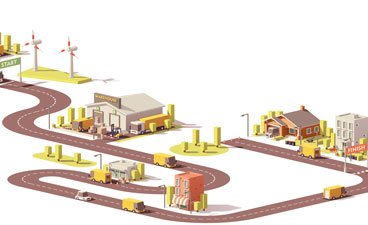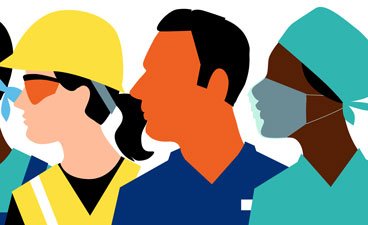
COVID-19 Response and Recovery
The COVID-19 pandemic is affecting the nation’s food and agricultural systems from production to consumption. There is an immediate need to develop and deploy rapid, reliable, and readily adaptable strategies across the food and agriculture enterprise to help mitigate the impact of the pandemic, aid in post-pandemic recovery, and develop protocols to help limit the impact of future threats to public health.
Research and Extension will:
- Enhance and fill knowledge and information gaps related to COVID-19 and how it is affecting, and could affect, the food and agricultural industry and the mental and physical health of Minnesotans
- Develop best practices, models, diagnostic tests, and personal protective equipment that will help ensure the safety of food and foodservice workers
- Catalog the economic impact of COVID-19 in Minnesota and develop strategies and models to mitigate the impact on rural Minnesotans and small-scale producers
- Provide timely education that supports adaptation to new conditions at home, in communities, in businesses and on farms
Research Highlights

Originally launched in 2017, the Parentopia Project involves the design of a web-based application that complements parent learning and engagement through Minnesota’s ECFE program. As a closed platform, Parentopia.org can promote both class specific and site-wide discussion, private messaging, and general program information. In more recent years, the platform has expanded to additional school districts and enabled research with parents and staff to design technology as a hybrid for face-to-face interactions. Research has also identified the specific learning benefits to parents meeting in consistent groups and forming networks rich in social capital.

The COVID-19 pandemic disrupted food supply chains across the U.S. It is essential for our food system to provide adequate nourishment to the people and support the livelihood of people who supply food. In response, a multidisciplinary team of researchers and Extension specialists from five universities have partnered to generate science-based knowledge and resources to enhance preparedness of the U.S. food supply chains for future disruptions.

In 2012, UMN providers and researchers from the School of Public Health, Academic Health Center (Office of Emergency Preparedness), and Department of Family Social Science partnered with colleagues at the Minnesota Department of Health to develop an innovative self-care app for emergency responders in the field. In early 2020, they again refined the app as a simplified in-the-field tool for first responders engaged in responding to the COVID-19 epidemic.

Early in the pandemic, concerns about N95 respirator shortages dominated the headlines around the world and there was an immediate need for safe alternatives that could also be quickly and effectively mass produced. But as supply chains stabilized, UMN researchers could focus on developing masks that not only block the virus but effectively kill it on contact.